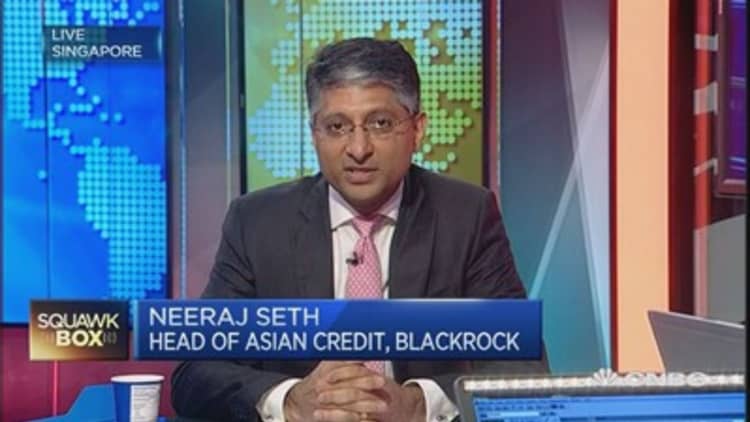You've heard of the "Greenspan put" and the "Bernanke guarantee", now get acquainted with the "Zhou put" as China's central bank pulls monetary levers to ease declines in the country's stock market.
The "Zhou put" is the term used by traders to describe the perceived attempt by People's Bank of China (PBoC) Governor Zhou Xiaochua over the weekend to boost the country's beleaguered stock market by easing monetary policy in order to help money flow into the market.
"The PBoC didn't say so, but it certainly had a tried and tested Greenspan tactic in mind when it cut policy rates and selected bank reserve requirements (RRR) on Saturday to inject liquidity into the system and stabilize markets," said Uwe Parpart, chief strategist and head of research at Reorient Group.
"We'll see the immediate effect on Monday and in coming weeks will see if and to what extent investors buy into the 'Zhou put'," he added.
The benchmark Shanghai Composite opened up almost 1 percent on Monday, only to slip into the red over the course of the morning. The index fell as much as 5 percent in a volatile trading session.

The PBoC on Saturday cut the benchmark one-year lending and deposit rates by 25 basis points to 4.85 percent and 2.0 percent respectively. It also reduced the RRR by 50 basis points for select lenders serving rural areas and small to medium-sized enterprises.
The bigger-than-expected easing package came on the heels of a near-20 percent correction in the Shanghai stock market from its June 12 peak of 5,166.35. China last cut both interest rates and the RRR at the same time in December 2008, at the peak of the global financial crisis.
Read MoreWatchout: These risks could derail China's bull run
"PBOC probably has no wish to see the market crash," said Bernard Aw, market strategist at IG. "The central bank has effectively put a floor under asset prices, like a put option on a stock."
"This is a significant departure from the past where it was clear that any policy move was to support growth," he said.
Will it work?
Tommy Xie Dongming, economist at OCBC Bank, is optimistic the "jumbo easing" will help sooth jittery investor sentiment.
"The Greenspan put managed to avert further deterioration via interest rate cut and liquidity injection after Dow Jones suffered a record single day loss of 22.6 percent in 1987 stock market crash," Xie said. "The jumbo easing in China is likely to play a similar role in stabilizing shaky confidence in China's equity market to avert a disastrous avalanche."
However, the continued prevalence of margin financing means that market volatility is here to stay, Xie added.
"We think further unwinding of margin trading taking advantage of any policy-led rebound may continue to create volatility in China's equity market," he said.
Steven Sun, head of Hong Kong and China equity research at HSBC shared a similar view : "Policy support could prevent further sharp market falls; yet investors will likely sell into the rebound to lower leverage. "
Read MoreIf I had just $1, I'd invest here: Stephen Roach
Chinese regulators have stepped up efforts to tighten margin activities in recent months to limit the risk of a bubble forming in the market.
Meanwhile, David Cui, strategist at Bank of America Merill Lynch pointed out that this was not the first time the PBoC had acted to shore up the equity market, noting that the central bank was getting less bang for its buck with each easing move.
"This is the the 4th round of major PBoC actions to support the market since November 2014 and each subsequent round's impact had diminished. By now, very few investors harbor any doubt about the government's desire to see the market up. But recent inflows into the market had proven insufficient to offset outflows and push the market higher," he said.
The PBOC's intentions
A healthy stock market is key element in the government's financial reform push, said Tim Condon, head of financial markets research Asia at ING, adding that the timing of PBOC's move was no coincidence.
"Cleaning up the excesses of the 2009-10 credit boom involves, among other things, substituting capital market funding – bond and equity issuance – for shadow bank funding – trust and entrusted loans and banker's acceptances," Condon said.
"A stock market crash would halt this," he added.


